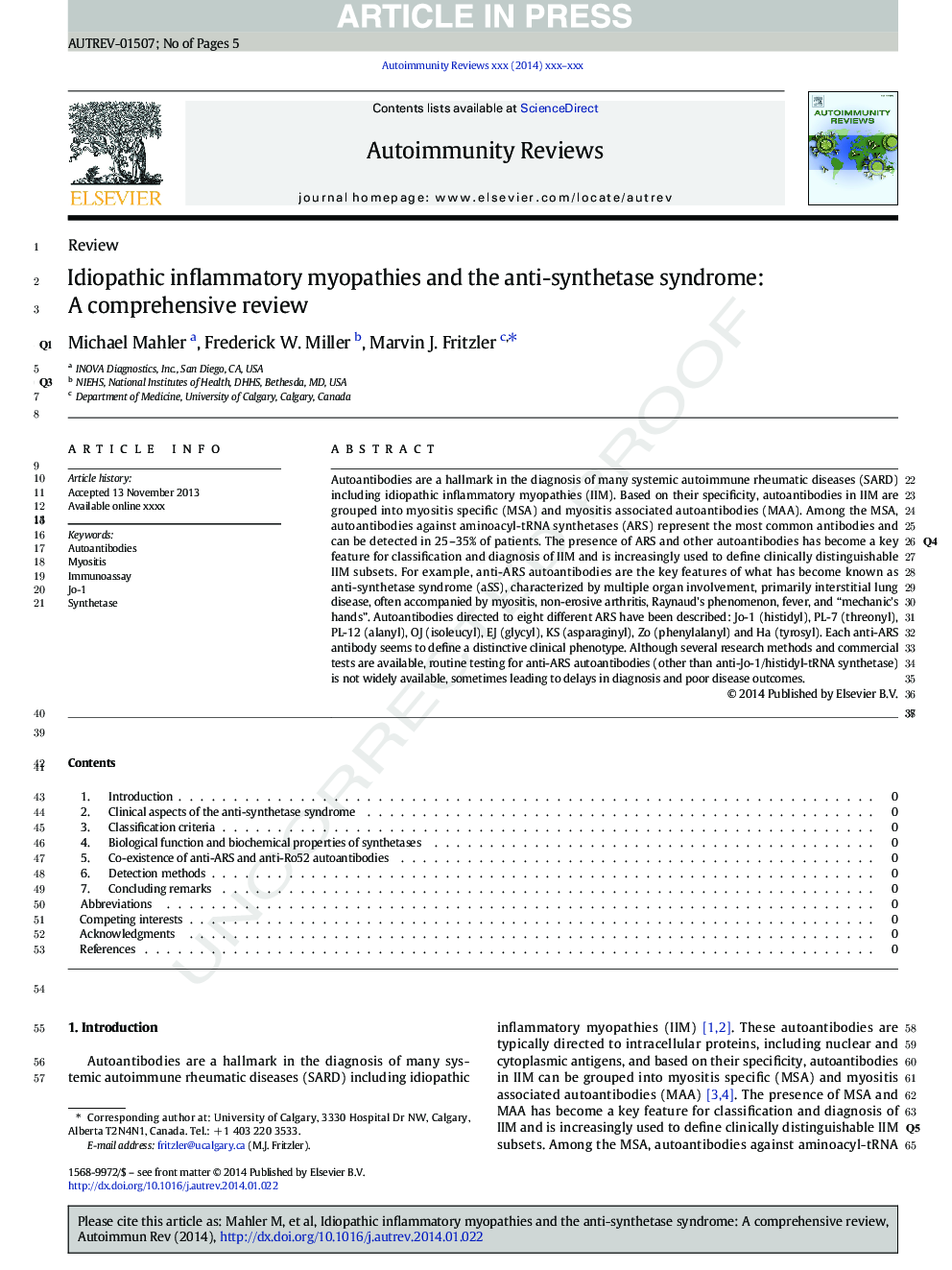| کد مقاله | کد نشریه | سال انتشار | مقاله انگلیسی | نسخه تمام متن |
|---|---|---|---|---|
| 6114466 | 1591146 | 2014 | 5 صفحه PDF | دانلود رایگان |
عنوان انگلیسی مقاله ISI
Idiopathic inflammatory myopathies and the anti-synthetase syndrome: A comprehensive review
ترجمه فارسی عنوان
میوپاتی های التهابی ایدیوپاتی و سندرم آنتی سنتز: یک بررسی جامع
دانلود مقاله + سفارش ترجمه
دانلود مقاله ISI انگلیسی
رایگان برای ایرانیان
کلمات کلیدی
موضوعات مرتبط
علوم زیستی و بیوفناوری
ایمنی شناسی و میکروب شناسی
ایمونولوژی
چکیده انگلیسی
Autoantibodies are a hallmark in the diagnosis of many systemic autoimmune rheumatic diseases (SARD) including idiopathic inflammatory myopathies (IIM). Based on their specificity, autoantibodies in IIM are grouped into myositis specific (MSA) and myositis associated autoantibodies (MAA). Among the MSA, autoantibodies against aminoacyl-tRNA synthetases (ARS) represent the most common antibodies and can be detected in 25-35% of patients. The presence of ARS and other autoantibodies has become a key feature for classification and diagnosis of IIM and is increasingly used to define clinically distinguishable IIM subsets. For example, anti-ARS autoantibodies are the key features of what has become known as anti-synthetase syndrome (aSS), characterized by multiple organ involvement, primarily interstitial lung disease, often accompanied by myositis, non-erosive arthritis, Raynaud's phenomenon, fever, and “mechanic's hands”. Autoantibodies directed to eight different ARS have been described: Jo-1 (histidyl), PL-7 (threonyl), PL-12 (alanyl), OJ (isoleucyl), EJ (glycyl), KS (asparaginyl), Zo (phenylalanyl) and Ha (tyrosyl). Each anti-ARS antibody seems to define a distinctive clinical phenotype. Although several research methods and commercial tests are available, routine testing for anti-ARS autoantibodies (other than anti-Jo-1/histidyl-tRNA synthetase) is not widely available, sometimes leading to delays in diagnosis and poor disease outcomes.
ناشر
Database: Elsevier - ScienceDirect (ساینس دایرکت)
Journal: Autoimmunity Reviews - Volume 13, Issues 4â5, AprilâMay 2014, Pages 367-371
Journal: Autoimmunity Reviews - Volume 13, Issues 4â5, AprilâMay 2014, Pages 367-371
نویسندگان
Michael Mahler, Frederick W. Miller, Marvin J. Fritzler,
